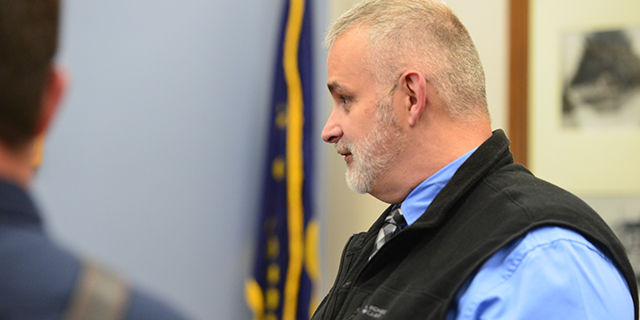THE WORK OF MOURNING
Published 12:00 am Saturday, November 13, 2004
There is an old saying it is much better to have loved and lost than never to have loved at all.
Trending
But try saying that to someone who has recently buried a wife … a father … or a child. Someone whose pain is so profound they wonder if they will ever live beyond the wilderness of it.
If you are the one who has experienced a loss, well-meaning friends with empty platitudes are often the last thing you need.
Yet others say nothing because they don’t know what to say. And ignoring a loss can be worse.
Trending
So, what can we do when we or someone we care for is suffering after the loss of a loved one?
"Seek help," says Theresa Smith-Dixon. "Do not go through grief alone."
Smith-Dixon has spent her entire career as a social worker in grief counseling. In her years with the Home Health/Hospice program, she has counseled many. She has also experienced her own grief. Grief, she believes, is a reaction to loving and loss.
"Grief is all the feelings we have when we’ve lost someone," she says, "but in order to heal, we need to mourn."
Although she had read the comforting 23rd Psalm many times, she remembers the day when the word "through" jumped off the page.
"You can’t go around it or avoid it, you have to go through the work of mourning. But it also says you are not to go alone," she explains.
Mourning is not a pathology that can be cured clinically, either. It is a work of the heart and the soul.
"It isn’t head work," she says. "You can’t think your way through it."
But you will, she says, grow spiritually and emotionally, becoming a stronger through the process.
"Denying the pain will not make it go away," she says. "It’s a spiritual and emotional wound that needs to heal from the inside out."
Denying grief may cause the wound to close over for a while, she says, but deep inside grief will continue to fester. Eventually, at some other time, in some other way, it will break open.
Human beings do everything to avoid pain, but facing the pain of grief is what allows us to move toward reconciliation and learning to find joy in living again.
"Sometimes people ask when they’ll get over it and get back to normal." Smith-Dixon smiles softly. "What they haven’t begun to understand yet is that grief changes us. You can’t ever go back you can only move forward."
Grief touches us all even when it may not be our personal loss. For example, she says, the recent tragic losses within our community.
"I see it out there in the community. I go to a lot of funerals and people tell me how they feel about these losses. They wonder what they can do to feel better or help someone else feel better."
Smith-Dixon says most people just need someone to talk to.
One of the best things to do when faced with someone you know has experienced a loss is to simply acknowledge that loss and ask if they would like to talk about it, she suggests, but don’t push.
Twice a year, in the spring and fall, Smith-Dixon leads a series of eight grief support and education sessions called Growing through Grief.
"It’s a wonderful place to come and share your feelings and experiences," she says. "You find out you aren’t alone. Although our grief experiences are uniquely our own, there are universal truths about loss, grief and the mourning process we all share."
Mardi Ford








